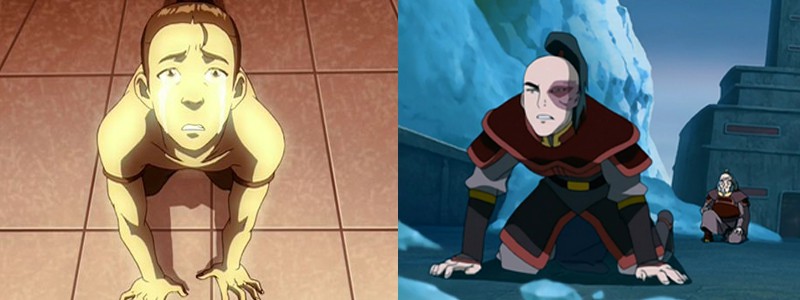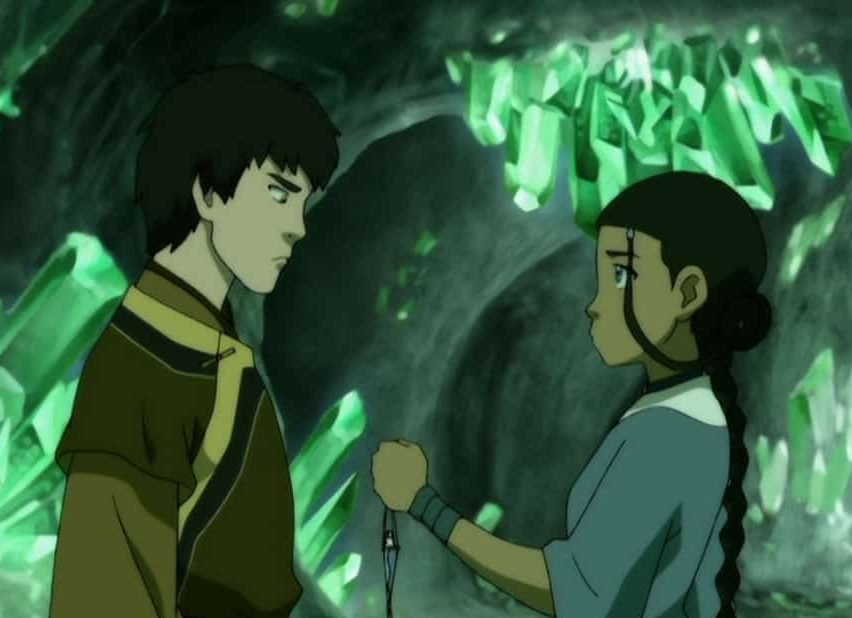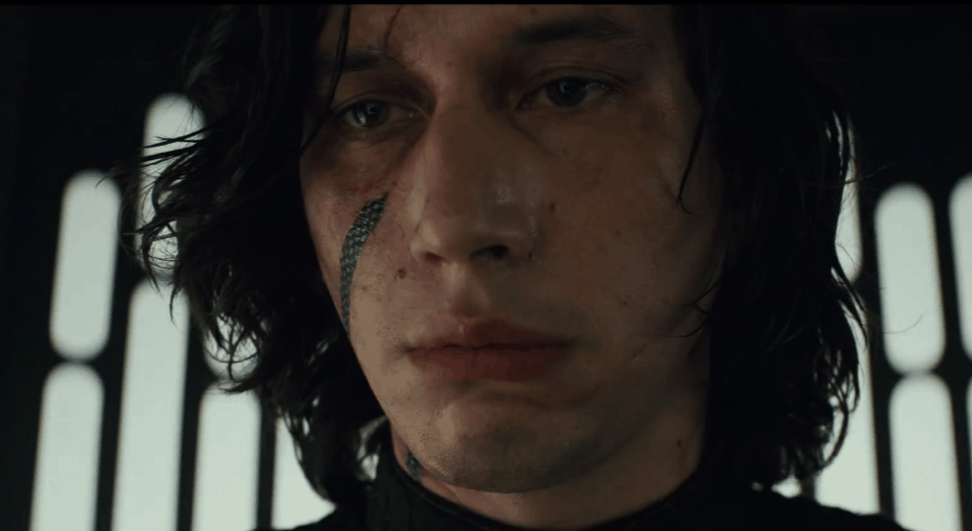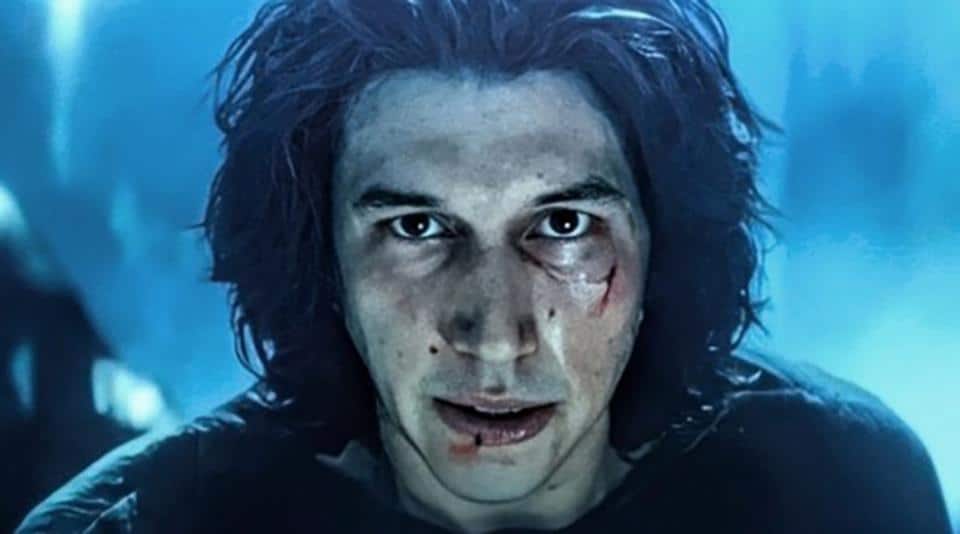The Last Airbender is on Netflix again and people are excited about it. And The Rise of Skywalker, erm, it’s on Disney Plus, yeah.
Zuko is a beloved character from The Last Airbender, and many people praise his redemption arc. As a misguided young person trying to please a father figure, there are some similarities to Kylo Ren. Kylo looked up to Snoke in a way that would make him a surrogate father to him. In this sense, he’s similar to Zuko, who wanted to please his father.
If you haven’t seen the Last Airbender, go and watch it. This post contains spoilers. If you haven’t seen The Force Awakens and The Last Jedi, go and watch them. If you haven’t seen The Rise of Skywalker, I salute and envy you!
What I loved most about Zuko’s redemption arc was that it was not linear. I think most redemption arcs I had seen so far had a big moment of realization, or perhaps a slow culmination of moments, and then a turn. This type of story is quite satisfying, but, somehow, Zuko’s winding arc was even more interesting because of its humanity. People change, yes, but people sometimes falter, hesitate. Change is an ongoing process.
Let’s look at Zuko’s redemption arc.

Interesting visual parallel when Zuko fails to capture the Avatar. He's still the little boy trying to get his father's approval.
We learn mid Season 1 that he’s not evil. He’s been outcast for doing the right thing, and now seeks the Avatar because of a warped notion of what honor is. At the end of the season he is defeated by the good guys (mostly due to cold, but he loses).
Season 2 is the most interesting one, where we get Zuko’s fall from grace. It’s quite a contrast. The proud prince from season 1 now roams the country as a beggar and even a thief. And yet, in his journey, he empathizes with the people, and has his chance to do good. In the final episode, when Katara shows him kindness, it really looks like he’s going to join the good guys.

But then the unexpected happens. That’s quite great. In drama, it’s called reversal, and this season ends with a brilliant reversal, because we get exactly the opposite of what we expected. Zuko betrays Katara, betrays his uncle, and finally gets what he always wanted (or thought he wanted); his father’s approval and acceptance.
I love how this happens. If Zuko were to turn good after an entire season suffering and learning to be humble, it would be from a place of lack. Now that he got everything he wanted, we get to see his true colors. And so does he.
Season 3 starts with Zuko getting his life in the Fire Nation back. Still, he realizes he’s not happy, and he realizes he doesn’t agree with what his father is doing. When he decides to leave the place and join Aang and his friend, it’s much more believable that this is what he truly wants. He already got what he thought he wanted, now it’s time to go after what he truly wants. And that’s what makes his turn so beautiful, that he does it from a position of power.
All right. Now let’s look at Kylo’s redemption arc:
The first movie in the Sequel Trilogy shows him evil but conflicted. He protests when Hux and Snoke decide to fire Starkiller base, and his body language as he watches it is not one of triumph or approval. He is defeated at the end of the movie. Just the fact that he was defeated should tip us off that he’s not the villain to be vanquished, otherwise he would be all-powerful and the heroes would need to work harder to defeat him. It’s not the case.
The second movie is The Last Jedi. He starts the movie humiliated by Snoke. It’s hardly as harsh as what Zuko went through, but shows a fall from grace. He also doesn’t want to kill his mother.

Kylo is hardly in a good place at the start of The Last Jedi
His turn is when he kills Snoke to protect Rey. They team up and we all think Kylo is going to turn good—but then he doesn’t.
And this is where I want you to pay attention, the similarities of their journeys up to the end of their second acts.
In 2017, when analyzing the marketing for The Last Jedi, I noticed how they were showing him unmasked, hinting at redemption, and I thought he would turn back evil at the end of the movie again. Why? Because movie 2 is too early for his turn, if we consider his redemption as central to the Sequel Trilogy. At the end of movie 2, it would have worked, but then we would need marketing about evil Kylo, right? And we didn’t get that.
https://youtu.be/tlEpU5QrLEY?t=352
The hints at a different Kylo, for me, suggested a non-linear redemption trajectory, like Zuko.
What happens is that Kylo, who seeks power as a way not to feel hurt, ends the second movie completely powerful, but unhappy.
Let's compare their arcs
In a way it is like Zuko’s arc in the sense that Kylo got what he wanted and yet realized that it wasn’t what he truly desired. It is interesting to make this observation that Zuko also ends part 2 evil.
This is important because I heard quite a few people saying that Kylo’s ending in the second movie of the Sequel Trilogy meant that he wasn’t going to be redeemed.
The other day I was watching a video about The Rise of Skywalker, and the commentator said that Kylo shouldn’t have been redeemed. According to him, the character’s ending in The Last Jedi proved that he wasn’t in a redemption arc. Fair enough, that’s a valid opinion. I disagree, but it’s a fair point-of-view.
But then the same person said that, unlike Kylo, Zuko had a good redemption arc. That doesn’t make sense whatsoever. At the end of season 2, thanks to Zuko’s help, The Avatar is killed. Let me repeat, Zuko’s betrayal leads to the death of the protagonist, who is only revived because of Katara’s magic water and healing abilities. That’s pretty evil, right?
In comparison, at the end of movie 2 Kylo doesn’t join Rey and ends up advancing on the Resistance. It is unfortunately not clear that he didn’t know that his mother and Rey were there, but considering he couldn’t even notice that Luke was a force projection, I’d say he wasn’t the smartest cookie. Kylo’s beef with his uncle is personal, and he reverts to an almost child-like state. And that is one reason why, even with that ending, he was still redeemable. He was acting like a hurt child. And the biggest reason for his redeemability was that Luke still believed in him.
Kylo’s actions seem to be rather motivated by rejection and hurt, and Rey’s rejection (that’s how he sees it), only compounds deeply settled feelings of betrayal and of being unworthy of love.
If we go back to Zuko, the motivation here is different. Zuko at the end of season 2 is not lashing out in anger but rather making a strategic decision that he thinks will bring him what he wants. Kylo, on the other hand, is clearly emotionally unstable, hurt, and not really making a decision. Both choices are bad, but neither of them reveal evil intent or greed. They are deeply emotional, even Zuko’s decision, since he wants his father’s acceptance and approval, and it’s offered to him on a plate.
The wonderful thing about watching these characters falter is that we are all emotional creatures, and we have all, at some point, made mistakes or wrong choices when blinded or misguided by emotions. If anything, it helps us identify with Zuko and Kylo. Mighty, incorruptible heroes can sometimes be inspiring, however, we, as audience, aren’t mighty and incorruptible, so it’s easier to identify with characters making mistakes, and yet learning from them, recovering, and then growing and becoming better people.
Another similarity between Zuko and Kylo, at the end of movie 2, is that they are shown compassion by the heroine, and then turn around and betray her.
Zuko was a clear betrayal. Instead of helping Katara and her friends, he turns around and even ends up fighting her! With Kylo, I believe it was a matter of miscommunication. It’s not that Rey asks him to help the Resistance and then turns around and attacks it, or that he asks her to rule the First Order and smash the Resistance, but rather that he seems to want to move beyond all of that. The first person who commits a betrayal, in that situation, is not Kylo, but Rey. She goes for the lightsaber instead of talking to him. She moves to attack first.
So, back to my point, it makes no sense to say that Zuko’s redemption is deserved and Kylo’s isn’t, due to their arcs at the end of Part 2. They’re similar. There are other issues that might cause people to dislike Kylo’s redemption, but they are not structural or plot-related.
I know that some people can’t forgive Kylo after he killed Han Solo, to which I can only say that Star Wars is symbolic, and Han forgave him. His last act was a loving touch on his son’s face. Some people don’t like Kylo because they felt Finn should be the hero. That’s a whole different issue. I don’t like it that they promoted Finn as the lead Jedi any more than anyone. I discussed this at length with Mary in this video: https://youtu.be/8mQ08OYoCXs
Still, Star Wars is about hope and redemption, Kylo is Han and Leia’s son. The story of the prodigal son is quite old. In terms of tropes and myth, it doesn’t make any sense to make a son go bad all the way. I know that they did this in Legends, with Jason Solo, but it wasn’t created by George Lucas, and he still had a sister, so it wasn’t ending the family in disgrace.
Now that we looked at how both Zuko and Kylo fall from grace and falter from their redemption trajectories in their second act, let’s look at the resolution of their arcs.
With Zuko, it’s obviously great. Not only is it his conscious choice to help the good guys, he goes through episodes of repentance, in which he helps and bonds with each character individually. His trust is earned, and he works hard to make up for the mistakes he and especially his family had made. His ending as the new Fire Lord is not a prize, but rather an opportunity to make up for his family and work hard for it.
Now let’s look at Kylo. At the end of The Last Jedi, he was kneeling on a base, with a few rays of light coming in, circled by cables looking like snakes. The light is outside. His shoulders are hunched and his head is down, in a position that shows defeat. Not only that, he's crying and holding his father's dice.
It would be a great opportunity to start the last movie with him questioning his choices, and questioning what he really wants. Instead, we get an evil Kylo being evil, confident, and loving it, which goes against all the characterization in The Last Jedi and The Force Awakens. This would be the moment for him to confront the dark night of his soul, now, free of Snoke, to realize that he could choose a different path. Alas, it wasn’t done.
There are good points in Kylo’s redemption arc in The Rise of Skywalker, though. Mainly, the fact that the catalyst for his turn is in knowing that he is loved. Kylo’s issue was mainly feelings of betrayal and rejection, thus, feeling loved and accepted is a good reason to ditch the fake persona and become who he is, Ben, again. So it works, but the issue is the execution. He should have been suffering before that. Suffering leads to transformation, both in real life and in stories.

Ben Solos natural, relaxed face shows us that this is who he truly is. The masks, literal and symbolic, are gone.
Another issue with Kylo is that he, unlike Zuko, doesn’t get a chance to repent or make up for his wrongdoings. And that’s a lost opportunity in so many ways I cannot describe.
I might come back to Kylo’s redemption arc in The Rise of Skywalker. Let me know if you'd like to read my analysis on that. I’ll end this post for now or it's going to be too long.
My main point remains: both Kylo and Zuko end their second acts rejecting or straying away from their redemption trajectories, which opens great possibilities for a real turn later on and for a deeper commitment in being good, leading to a conscious choice to change. It doesn’t count against their redeemability. On the contrary, it makes their trajectories interesting and relatable.
If you want to hear more about Zulo and Kylo, I talked about it in 2017 with Irina: https://www.youtube.com/watch?v=EHMvWPqw-Vk and https://www.youtube.com/watch?v=psgSI3v-EaQ&t=67s










